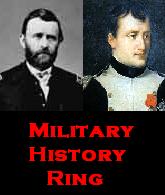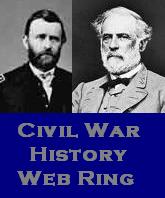Readers of this blog who are interested in the Cold War, intelligence, technology, and historical fiction will likely enjoy a novel that covers the European Theater of the great game between East and West. Bill Fortin, a US Army veteran from 1968-1970, who served in West Germany, wrote a novel based around his experiences in the 3rd Armored Division that provides a unique story into an obscure area of Cold War operations.
RedEye Fulda Cold examines the conflict from the eyes of soldier Rick Fontain. Fontain, a draftee from Maryland, enters the Army in April 1968, when most were sent to Vietnam. Based on his test scores, Fontain is offered a slot at OCS, having some college under his belt, but chooses another path that leads him to Fort Bliss, Texas for training on the Redeye shoulder-fired missile system and station in West Germany. He serves about a year and a half at Coleman Kaserne as a member of 1st Battalion, 48th Infantry Regiment, coordinating the implementation of Redeye into the area as part of the defense against Warsaw Pact forces.
During his time in service, Fontain meets Bill Douglas, who goes by several aliases and works for the CIA as part of their efforts to wage the Cold War around the globe. The encounter connects Fontain with important individuals connected with the intelligence game in Europe, while also shielding his career along the way. With his abilities and personality, Rick successfully implements Redeye into his unit, becoming a leading non-commissioned officer (NCO) overseeing the deployment of the system as part of the larger defense strategy in the area against a potential Soviet invasion through the Fulda Gap. In addition, Fontain’s expertise and his connection to Douglas allow him to interact with high-level personnel in the Army and CIA communities. During his time in West Germany, Rick finds time to socialize with the locals, including finding a love interest. Eventually, after several unique adventures, Fontain’s time in Germany ends, but this is only the beginning of his role in the Cold War.
Fortin presents Rick Fontain as an honorable character and capable leader, who looks out for those around him and finds a camaraderie in the Army that is attractive to him in many ways. Further, the men and women he encounters along the way are as interesting, making you want to know more about them as well. The story itself is quite good, with lots of interesting happenings and side stories. While initially expecting a different trajectory, leading to a “Cold War gone hot” situation, I was overall pleased with how the story turned out. Basing the story and characters on his own real-life service, Fortin did an outstanding job of writing a convincing novel on the Cold War that read more like a memoir than a work of fiction. That said, Fortin should strongly consider writing his memoirs of his real service in West Germany, as they would be quite useful to scholars of Cold War history.
Those interested in technology in the Cold War will not be disappointed, as the complexities of the Redeye system are detailed, as are vehicles, aircraft, and early work with remotely piloted aircraft. In addition, those who enjoy spy novels and intelligence/espionage type stories will get something from this book, as while not a work like Ian Flemming’s or Tom Clancy’s, there is sufficient political and intelligence intrigue that should whet the appetite of this audience. Finally, those into military historical fiction will enjoy it simply as a novelization of one common soldier’s service in Western Europe during an often overshadowed time and place in Cold War history.
My only two major issues revolve around stylistic choices. Fortin’s organization of the book somewhat detracts from the typical styling of a novel, as he breaks up chapters into several sections based on a particular time and place, which breaks up the flow of the story a bit. However, it is only a minor issue that helps readers discern where Rick Fontain is. The reason it is a slight issue is that it causes the book to read as a memoir, which it is not meant to be. The other criticism is Fortin’s use of footnotes that explain military slang and abbreviations, as well as certain biographies of important real-world individuals associated with the real happenings of the story arc and technical information. While these make the work accessible to a wider audience, they are also distracting, as they break up the flow of the story. Further, given that this book is going to have a core audience that will likely know what the terms mean, they come across as a bit redundant.
Overall, the book is a solid story of Cold War historical fiction with compelling characters and good prose. It will appeal to a wide and diverse audience and will leave readers wanting to pick up Fortin’s next novel in the Rick Fontain saga, which Fortin will hopefully produce. If looking for a good winter read that has history, technology, and the Cold War, go grab Redeye Fulda Cold.














 Bill Fortin, Redeye Fulda Cold: A Rick Fontain Novel. Cold War Publications, 2015. Maps, Illustrations, Photographs. $16.15. 422pp.
Bill Fortin, Redeye Fulda Cold: A Rick Fontain Novel. Cold War Publications, 2015. Maps, Illustrations, Photographs. $16.15. 422pp.